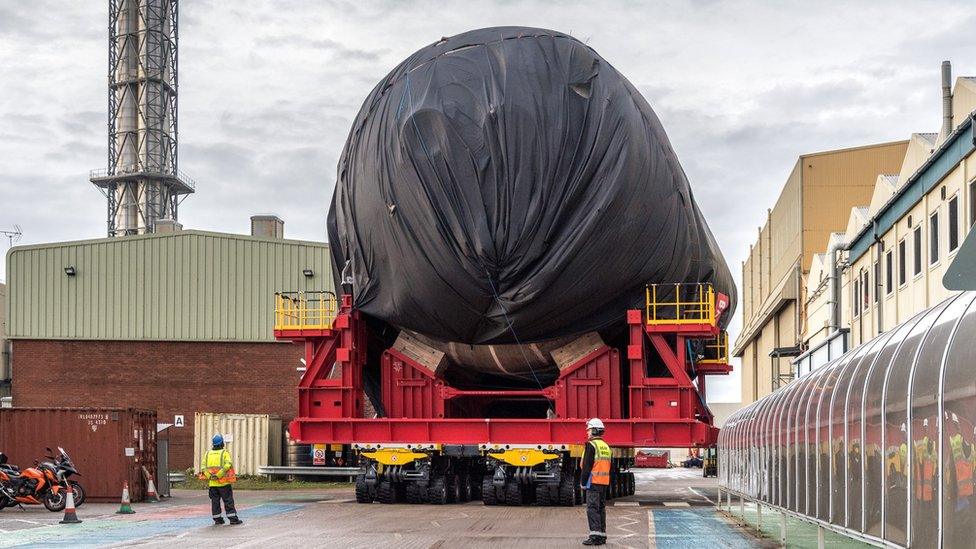Barrow: Contracts of £2bn to build nuclear submarines
- Published
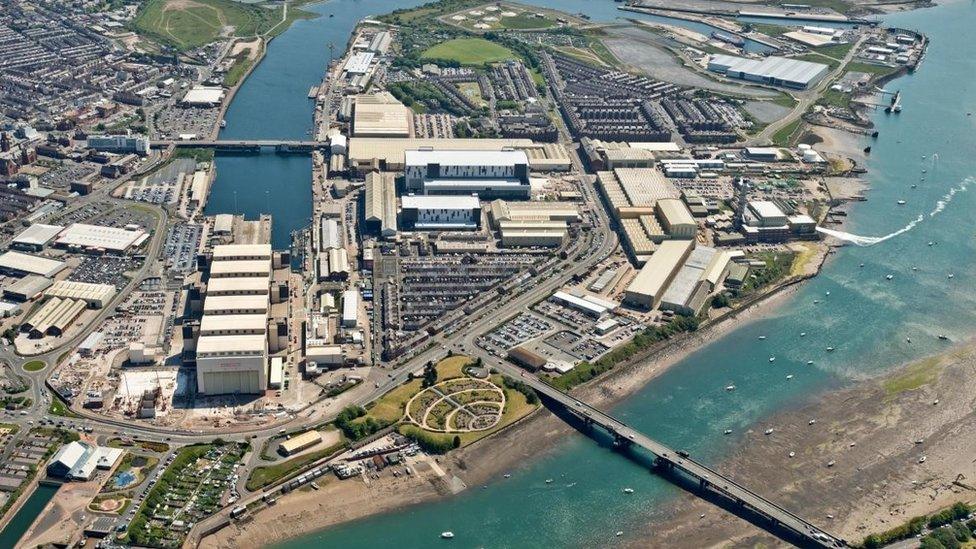
The Barrow shipyard has about 10,000 people working there
Contracts worth more than £2bn have been awarded to BAE Systems and Rolls Royce to build the Royal Navy's largest ever submarines.
It marks the start of the third phase of Britain's nuclear deterrent submarines project Dreadnought.
Four new submarines with a lifespan of 30 years will be built in Barrow, Cumbria, and introduced from the 2030s.
The programme has supported 30,000 UK jobs including about 13,500 jobs in the north-west of England, the MoD said.
Dreadnought submarines will carry the UK's nuclear weapons and replace the Vanguard class which is currently operating.
The delivery phase three will see the first of the new submarines, HMS Dreadnought, leave the Barrow shipyard to begin sea trials.
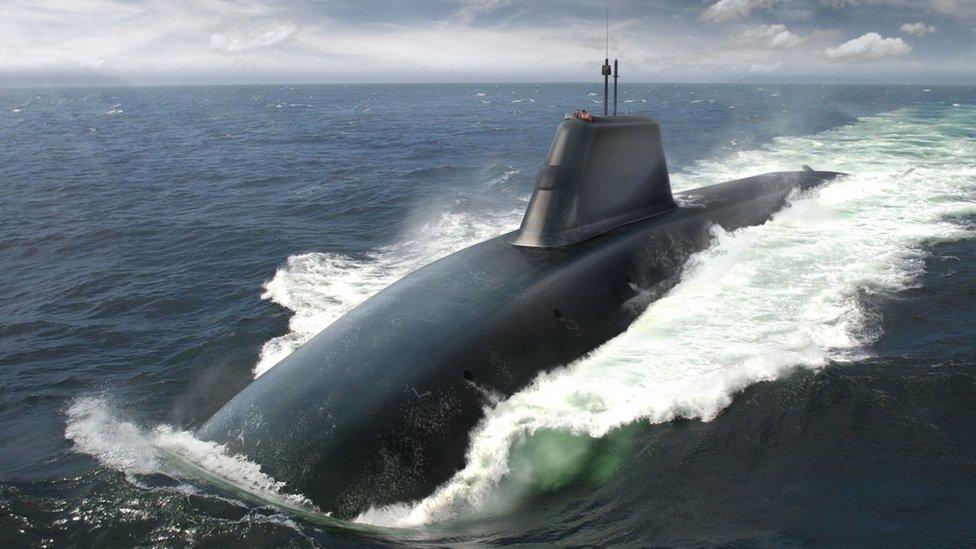
Dreadnought-class submarines will carry the next generation of nuclear deterrent
Managing director, BAE Systems Submarines, Steve Timms said: "Today's funding announcement allows us to maintain the Dreadnought programme's progress and continue investing in the infrastructure and skills needed to deliver these highly complex submarines to the Royal Navy."
The Dreadnought Class is the largest submarine ever built for the Royal Navy. Each is the length of three Olympic swimming pools and built to operate in hostile environments.
Defence procurement minister Jeremy Quin said: "The Dreadnought Class will be crucial to maintaining and safeguarding our national security.
"Designed in the UK, built in the UK and supporting tens of thousands of jobs in the UK, the Dreadnought programme is a leading example of our commitment to defence manufacturing and will continue to boost British industry for decades to come."
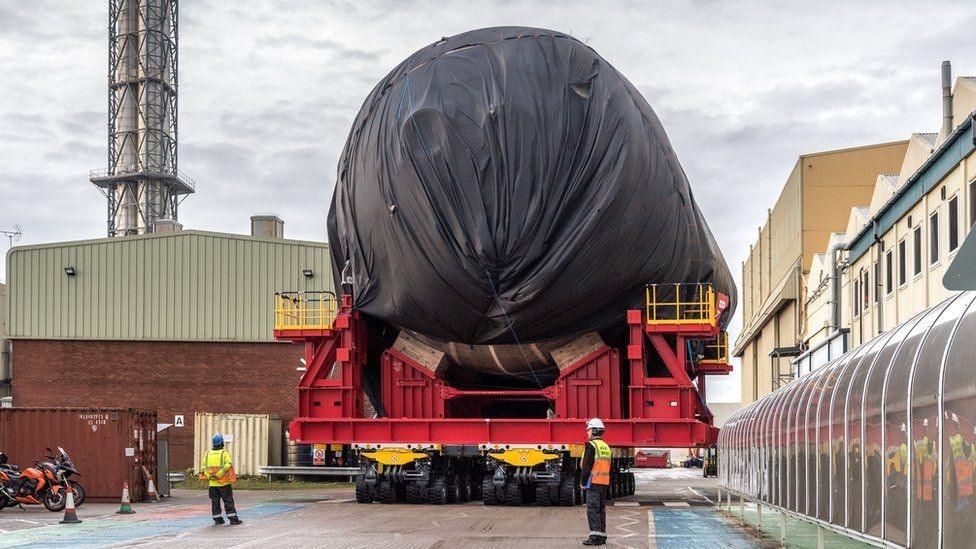
Four Dreadnought class submarines are being built, each weighing about 17,000 tonnes
Eighteen months ago an upgrade at BAE Systems' shipyard was criticised by the National Audit Office for being nearly two years behind schedule, but the MoD maintained the nuclear deterrent programme was "on track".
More than 1,050 apprentices and graduates are being trained at BAE Systems' Submarines Academy for Skills and Knowledge, and a further 230 craft apprentices, 110 degree apprentices and 90 graduates are set to join the south Cumbrian site this year.

Follow BBC North East & Cumbria on Twitter, external, Facebook, external and Instagram, external. Send your story ideas to northeastandcumbria@bbc.co.uk, external.
Related topics
- Published12 April 2022
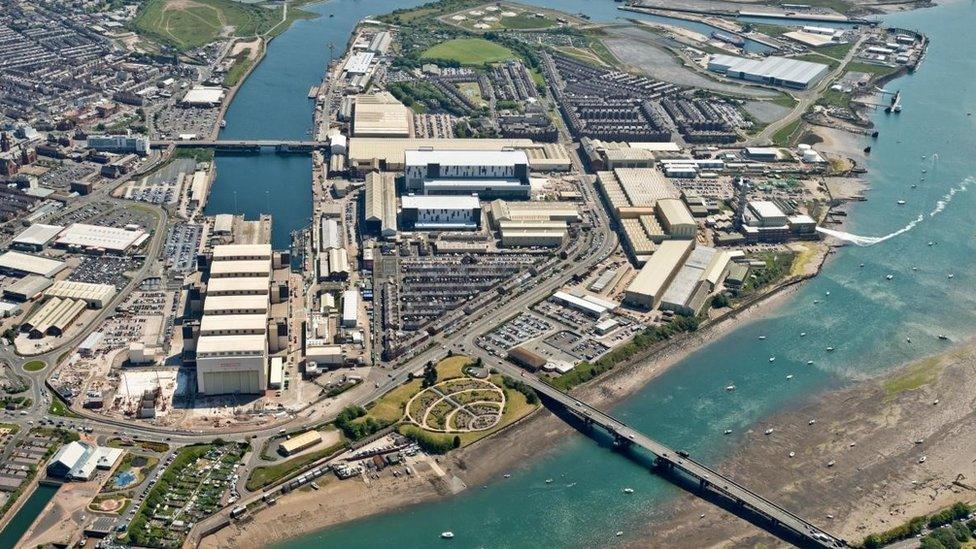
- Published28 December 2020
